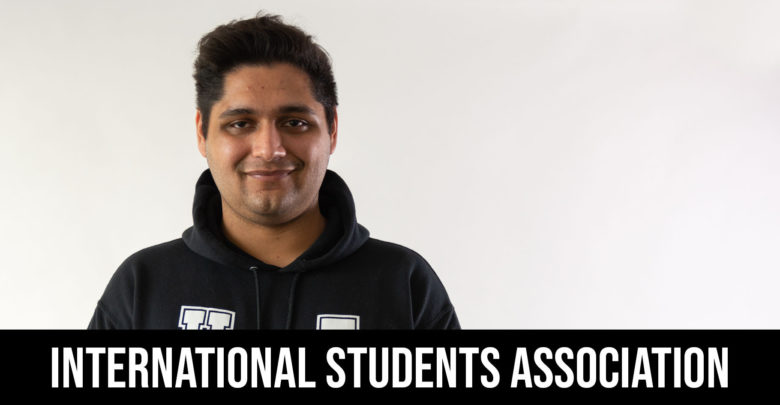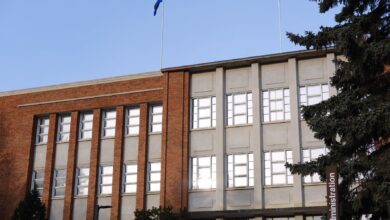SU Elections 2022 Q&A: International Students’ Association Fee Referendum
The Students’ Union 2022 election will allow students to decide on implementing the International Students Association Fee.
 Lochlann Kerr
Lochlann KerrIn addition to electing new student representatives, the Students’ Union 2022 election will give students the opportunity to decide on implementing the International Students’ Association Fee (ISAF).
The fee put forward by the International Students’ Association (ISA) would be $3.50 per semester per international undergraduate student, to provide international students at the University of Alberta with specialized services and programs. These would include events such as an International Students’ Day and awards specifically designed for international students.
Representing the ISA in this Q&A is Chanpreet Singh, fourth year software engineering student and current ISA president.
The following interview has been condensed and simplified for clarity.
What is this referendum trying to accomplish?
Chanpreet Singh: The basic core of this referendum is to provide dedicated services and programs to international students and overall improve the campus experience. There are many stakeholders on campus, but having something that’s more dedicated just to have a sense of community among the international students that they belong, and [offer] things that are there only for them. [This can include] things which are more culturally focused and regionally focused. Those are the things that we want to achieve with this fee.
For students who don’t know, what is the ISAF?
Singh: The ISAF is a membership fee for the ISA. The ISA represents all undergraduate international students on campus and advocate on their behalf. This fee shall help the ISA to further strengthen its advocacy by having a more solid structure and more strong foundation.
Along with that, this fee will help the ISA provide services and programs that it cannot [provide] without having that level of funding. It is going to fund our Discount and Benefit Program, which is the International Students’ Benefit Card (ICard) program. It’s going to provide more dedicated awards for the international students. It’s even going to fund regional and Black, Indigenous, and People of Colour (BIPOC) groups so we can support these regional groups in hosting more events, and serving the community overall. Then at the same time, it will fund welcome programs of the ISA, fund other year-round programs that we have at the ISA such as International Students’ Day, and help us host various mental health and professional development workshops at the same time.
If this referendum passes, how much will students be paying and how was that cost determined?
Singh: Students would be paying $3.50 dollar per semester, and they would be paying $3.50 again for the Spring/Summer semester — so it’s like a tri-semester [fee].
We did three surveys in total. In the very first one, we just realized what students’ general priorities are. Then we went with [Google] Jamboard community activities and council Jamboard activities. We were looking at what students really want — what are the program and services they are looking for?
Once we had all the services and all the programs that we can provide with them, logistically, that is where we came up with the amount. That’s where we thought that $3.50 would be a good amount to start off the fee, especially for the first two years since we are really going to start this fee from the ground. Overall, the amount is based on the cost-based analysis on what programs and how much they’re going to cost the ISA.
Will all students be paying this fee?
Singh: All undergraduate international students would be paying this fee. At the moment, the graduate students would not be paying. Students on Augustana and Campus Saint-Jean would be paying this fee. If international students are on co-op terms or on work terms, those students would not be paying. Visiting students would not be paying this fee, because they’re only for a very limited time.
Why do you think students should care about the work being done by the International Students’ Association?
Singh: In last few years, especially with the pandemic, students are seeing a lot of value in the work that the ISA does. Especially the work in advocacy that [the ISA] does. When we remember when students were asked to leave residence — because of the ISA they were provided free relocation assistance from residence. When the U-Pass was replaced by the Ride Transit Program, it was because of the ISA’s advocacy that [international] students were included in the Ride Transit Program. In the online learning environment, when students were back at their home and were struggling with lectures not being recorded at all, it was the ISA that forced the university to make a task force to work on resolving these issues.
There’s a lot the ISA does for international students and we really feel that international students value that work. To be a strong advocate, you need to be really connected with your membership. You need to make sure that students know about you, and they come to you whenever they have any issues or anything. That is what this fee will help. When we start providing them with the services and programs, that will build a better trust factor and that will encourage the students to come to the ISA when they feel [like it], and overall it will increase it will strengthen our advocacy mandate as an organization.
-With files from Mitchell Pawluk




